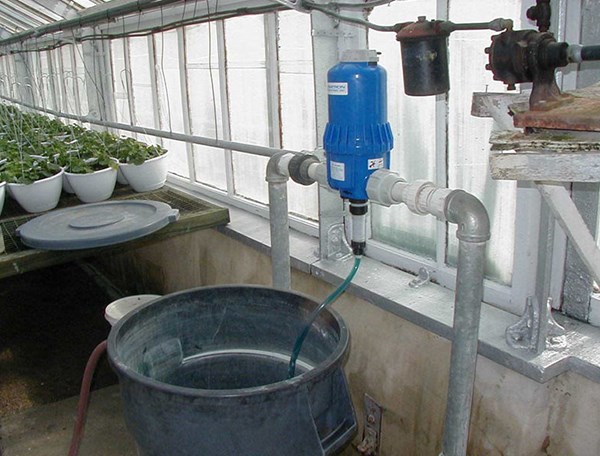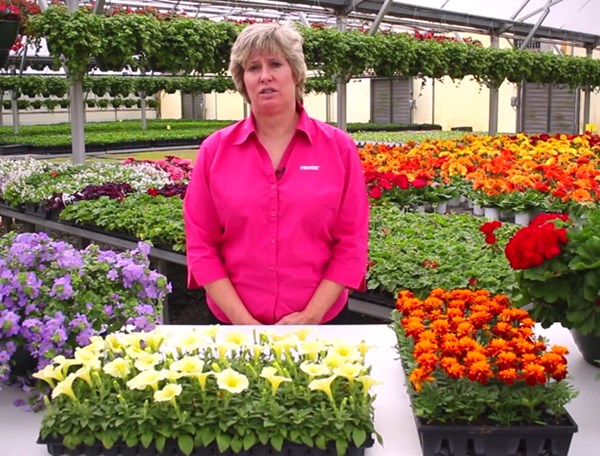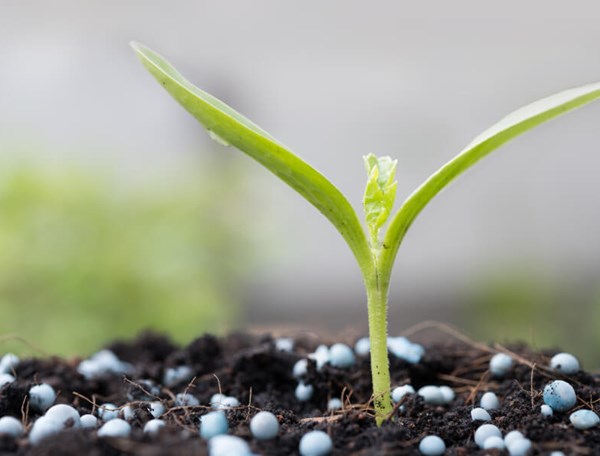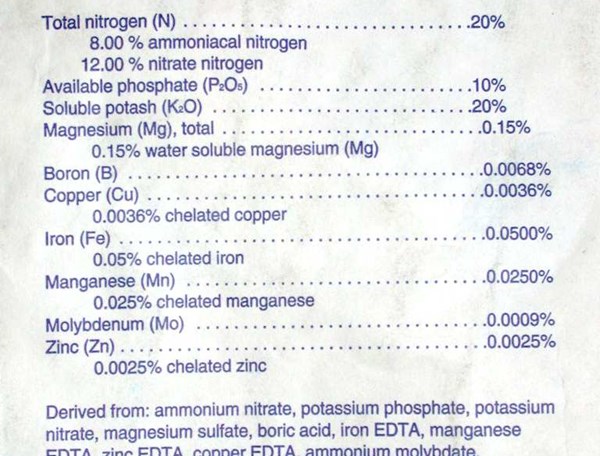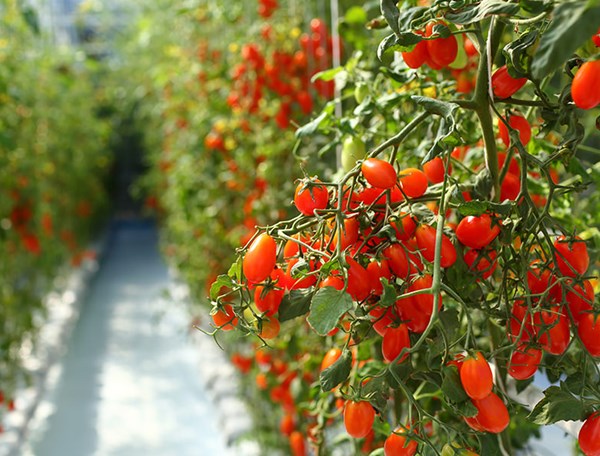Training Center
Organic Fertilizers for Crop Production
Thursday, September 7, 2023 | Troy Buechel
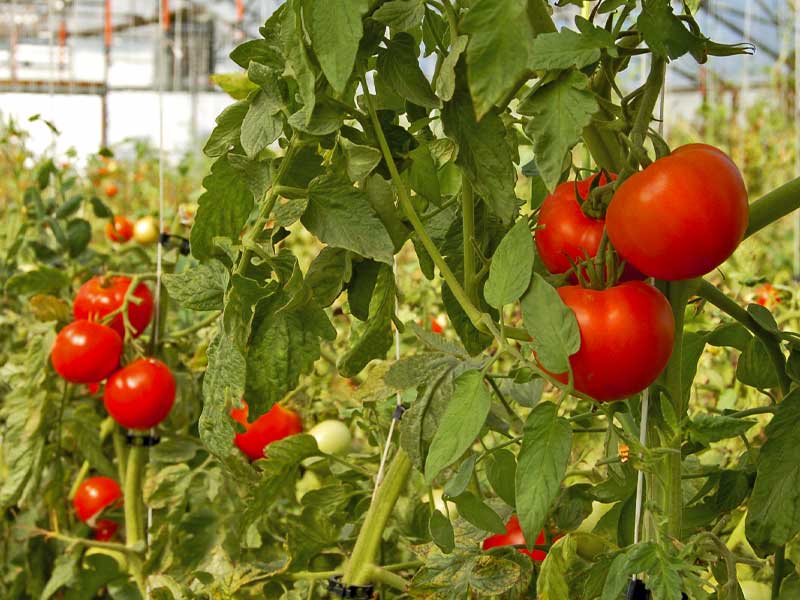
As greenhouse organic methods of plant production have increased in interest, the need for viable organic fertilizers has also increased. Organic fertilizer options in the past consisted of single sources of animal and plant by-products that varied in nutrient analysis, release and quality from source to source and batch to batch. Manufacturers today are providing an increasing variety of organic fertilizer products that are more uniform. This consistency is being accomplished through improved manufacturing processes and formula specifications. Organic products are available now as composites of several different organic materials, which help provide more balanced nutrient analyses.
Below, you will find out the impacts of bringing organic fertilizer in your production.
Thoroughly Controlled Organic Fertilization
Although the process is more complicated, it is possible to obtain adequate nutrients from organic sources, but it takes more careful and creative management. In the past, no single organic fertilizer would provide all the required essential elements; therefore, a combination of organic materials had to be devised.
Even with these advancements, fertility management is more challenging with organic fertilizers compared to conventional fertilizers. There are several reasons for this, starting with the challenge of knowing both the amount of nitrogen (N) applied and the rate of nitrogen released from the organic material and how it matches to nutrient requirement of the plants.
Nitrogen is the most likely major element to become deficient in both traditional and organic productions. In most inorganic chemical fertilizers, nitrogen is immediately available. But, it is more slowly available in most organic fertilizer sources. Nitrogen in organic matter is released from complex molecules but must be converted to ammonium and nitrate ions before plants can take it up.
This process is natural and occurs because of the activity of several bacterial/microbial species found in most growing media. This process can be unpredictable and is affected by the factors that impact the activity of bacterial/microbial populations.
Uneven nutrient levels
Another reason organic fertilizers are more challenging to use is that their ratio of nitrogen, phosphate and potassium are not in the same proportion to each other as with traditional fertilizers. Nitrogen and potassium are traditionally both provided in the same amount in conventional N-P-K fertilizers while phosphate should be no more than half the amount of nitrogen.
Organic fertilizers have a different N-P-K analysis, but these formulations will result in comparable plant growth with conventional fertilizers.
If organic fertilizers are used at the same rate of nitrogen (ppm) as with conventional fertilizers, there could be a risk of high salt levels and organic acids build-up, which can be damaging for plant growth.
Organic Materials for More Nutrients
Many organic bulk materials can be incorporated in the growing medium prior to planting in order to provide nutrients. The effective level of these materials depends on the nutrient analysis, the amount added and the needs of the plant.
Some pre-plant organic fertilizer materials include, but are not limited to: blood meal, bone meal, fish meal, alfalfa meal, cottonseed meal, crab meal, feather meal, bat guano, greensand meal, kelp meal, dried manure, seabird guano, rock phosphate, soybean meal, wood ash and worm castings.
The Organic Materials Review Institute (OMRI) maintains an extensive list of these materials on their website. In most cases, it may be necessary to apply a ‘soluble’ organic fertilizer solution after planting to boost the level of available nutrients. This is where liquid organic fertilizers, like fish emulsion, become important.
Organic Fertilizer for Vegetables Production
Using organic fertilizers in your production may be challenging as the balancing of nutrients levels is harder to achieve, especially with nitrogen. When it comes to choosing the right material, the same care applies for vegetable production as for any other crop.
Important Element to Keep in Mind When it Comes to Organic Crop Fertilizer
When switching to organic crop production and an organic fertilization program, be prepared to more intensively manage the fertilization program over the course of the production cycle. A few things to keep in mind when doing so are:
- Consider the length of your crop’s growing cycle;
- If using a pre-plant organic fertilizer, know the EC of the amended mix;
- Mix and match fertilizers, formulations and nutrient applications to meet the plants needs.
Are PRO-MIX Growing Media Organic?
Before fertilizing with an organic fertilizer, you need to start your production with organic growing medium. PRO-MIX offers a full line of products for organic growing. These products can be used for edible crops such as vegetables, herbs, small fruits and organic flowers, in anything from basically plugs for seed germination applications or for potted plants, cell packs, and even larger containers.
See our organic growing media and how they can help you in your production here.
Remember that regardless of the organic fertilizer you choose, your production program should always include a comprehensive monitoring plan for pH, EC and nutrient levels throughout the plant growth cycle.
For more information, contact your Premier Tech Grower Services Representative:
 |
 |
 |
 |
|---|---|---|---|
|
Ed Bloodnick |
Nathan Wallace-Springer |
Lance Lawson |
Victor Brantly |
 |
 |
 |
|
|
Troy Buechel |
Susan Parent |
Jose Chen Lopez |
PRO-MIX® is a registered trademark of PREMIER HORTICULTURE Ltd.
Related Articles
-
How to Calibrate Fertilizer Injectors
Plants require essential elements to maximize their genetic potential. These elements are supplied by air, water, substrates and fertilizers; for water soluble fertilizers, it is important to make sure your fertilizer injector is working properly and that it is calibrated for accuracy.
-
Influence of Fertilizer on Growing Media
Horticulture Specialist from our Grower Services team, JoAnn Peery, explains the 2 main factors to determine the fertilizer you should use depending on your water quality and the kind of crops you are growing.
-
Pros and Cons of Using Controlled-Release Fertilizers in the Greenhouse
The focus for this article is to discuss the pros and cons of using a controlled-release fertilizer compared to traditional water soluble fertilizers.
-
Fertilizers are necessary to feed plants with nutrients that are not available in the growing medium solution or the irrigation water.
-
Ideal Fertilization for Greenhouse Vegetables and Herbs
Vegetables and herbs fertilization requirements are similar to bedding plants early in their crop cycle. However, as vegetable and herb plants progress from vegetative growth into flowering and fruit production, fertility rates and ratios change for each crop.
-
Matching Water Soluble Fertilizer to Water Quality
Purchasing water soluble fertilizer for your crops is not simply based on what is on sale or selecting a “geranium fertilizer” for your geraniums; it is based mostly on the quality of your water source.



 Where to find our products
Where to find our products
